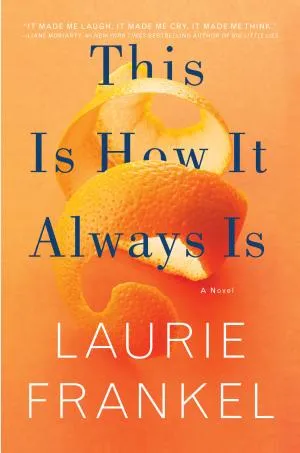
At first Penn wouldn’t write about the sick kids and their sick parents, the kids struck with cancers and heart diseases and accidents and violence in their homes, the parents struck with sick kids. Sick kids defied all narrative theory he’d ever known. There was nothing redemptive about a dying child. There was nothing that could be learned from a kid coming in shot or beaten that made it worth a kid getting shot or beaten. This had always pissed him off about Romeo and Juliet, its ending platitude that at least the feud was laid to rest and the fighting families had come together as if this somehow made it worth losing their teenagers. As if Romeo and Juliet would have been willing to die just so their parents would get along.
And underneath that cacophony she could just make out the narrator who pointed quite peaceably to the fork in the road before them. The path on the right was paved and shady, rolling gently along a childhood filled with acceptance to an adulthood marked by requited love, grandchildren, and joy, whereas the other path was rock-strewn and windblown, uphill both directions, and led she had no idea where. Here she was at the crossroads letting her baby boy run blindly down the path on the left (in a skirt and heels) while the narrator looked on reprovingly.
The kindergarteners were unfazed. Very little is unalterable as far as five-year-olds are concerned. Very little doesn’t change. One day those squiggly lines in books transmute into words. One day actual pieces of your mouth start falling off. One day your beloved resolves into a kind of ratty stuffed animal, and for the first time in your life, you feel fine about leaving him home. One day, like magic, you can balance on two wheels. That one day you could be a boy and the next become a girl was not out of their dominion.
Sometimes he called Poppy “he” and sometimes “she.” Sometimes he called Roo and Ben and Rigel and Orion “he” and sometimes “she.” Sometimes he called Roo “Ben” (wrong kid) or “Rufus” (wrong name) or “Rude” (not a name at all though, increasingly, not necessarily untrue either). Sometimes he called Rosie “he.” Once he introduced her at a party as his husband. He called the mailman “she.” He called the guy who fixed the brakes on the van “she.” He called the newspaper “she.” Neither Claude nor Poppy seemed bothered one way or the other, but Penn felt something essential in his brain had been severed. Whatever link you got for free that picked the appropriate pronoun whenever one was called for was permanently decoupled, and suddenly Penn’s mother tongue was foreign.